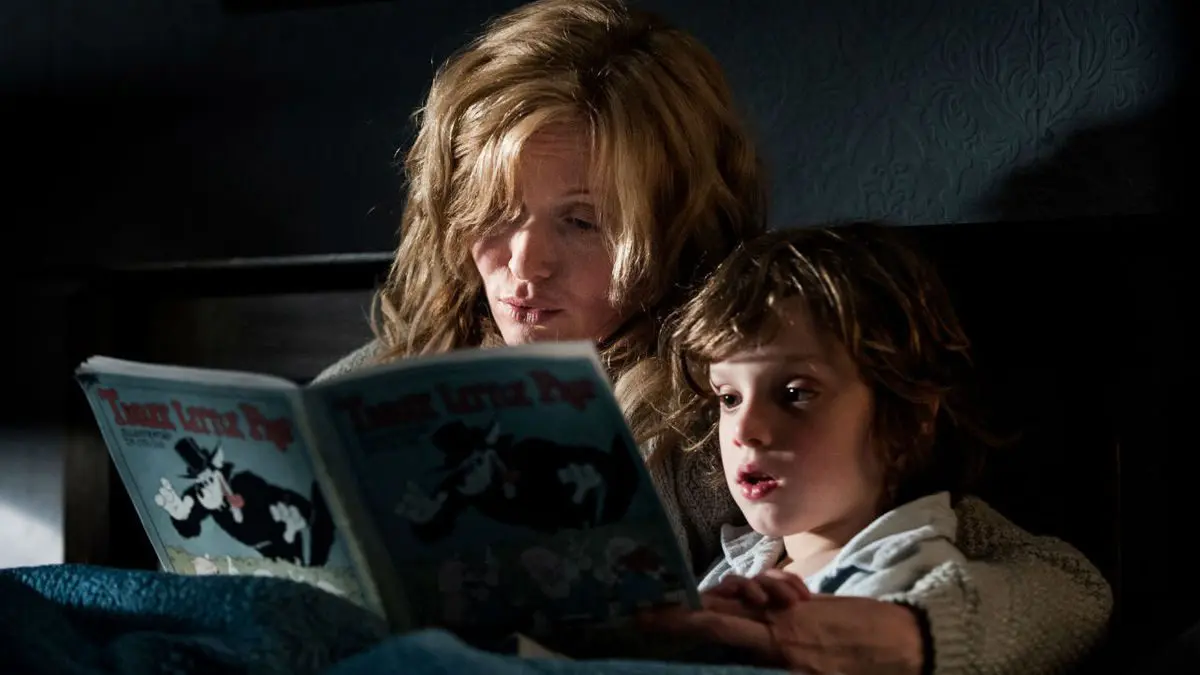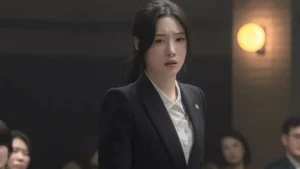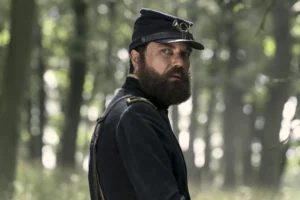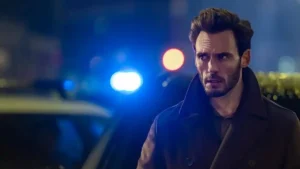What is surprising, poignant, provocative, and frightening about The Babadook is its honesty. Here is a film – a debut feature, no less, written and directed by Australian filmmaker Jennifer Kent – that repurposes the innate ridiculousness of the horror genre as a tool of philosophical self-examination. In it, the characters imagine their fears, their hates, and their inner psychoses as a folkloric bogeyman; as a convenient, literal manifestation of their most shameful anxieties. Here, as in most horror films, things go bump in the night, but what lurks in its small, lightless spaces is terrifying because it is bold and true. Whether its titular ghoul is real or imagined ceases to be the point long before the end of The Babadook, but the fear that it represents remains; it is our collective fear, of our own malice and frustration and distress and agony, even – perhaps especially – when we direct it towards those we’re supposed to love. The film asks us to come to terms with the ugly sides of ourselves.
The Babadook – which, by the way, is pronounced with a short double-“o”, as in “book” – is not a film expressly aimed at parents, but it is about parents, and their children, and the difficulties in raising and being raised by another human being. Few among us, as children, did not wonder quietly to ourselves why our parents did things that seemingly made no sense; why their rules were so arbitrary, so pointless, so boring. I’m a parent myself now, to a little girl, and I know that the rules exist for my daughter’s protection and development. She doesn’t get this, of course. When I try to explain it to her – and I do so often, usually out of desperation – she looks at me as though I’ve just cooked and eaten the family cat. Childhood and parenting are so frequently incompatible, and The Babadook is a metaphor for the terrors implicit in both.
Kent’s directorial strategy is to bisect her film, with one half told from the bleary-eyed perspective of Amelia (Essie Davis), a stressed single-mother at the end of her tether, and the other from that of her precocious, disturbed, difficult son, Samuel (Noah Wiseman). She’s a widow – her husband was killed in a car accident during the rush to the hospital the night Sam was born. And Sam, well, he lives mostly in his own addled imagination, spending a lot of time concocting crude weapons and traps to defend himself and his mother from imaginary enemies. She’s lonely and desperate; he’s needy and troubled. To Amelia, Sam is her son, but also an invader, the embodiment of her loss and her unfulfilled needs. To Sam, Amelia is his mother, his protector, but also oppressive and delusional and, increasingly, threatening and dangerous. Together, the two have fused their ordeals, projected them into a creature of their own making – a top-hatted, expressionist shade that Sam discovers in a malevolent children’s book. Is “The Babadook” real? Isn’t it?
It doesn’t really matter. For all this to work it is important that the audience is resentful of Sam, who is a terror at school and almost kills another child, such that they understand Amelia’s increasing frustration. But it’s also vital that, once the monsters start to make themselves known, they recognise Amelia’s potential for irrationality – that Sam is as vulnerable as he feels. This is not an easy thing to accomplish, and The Babadook is only able to thanks to superb leading performances. Davis is highly convincing as the frayed and frazzled single-mother doing the best she can under vexing circumstances, and then, later, as a manic, frothing vessel of rage and frustration. But the standout is young Noah Wiseman, a pale, gaunt and wide-eyed child who is alternately frightened and frightening. He gives the best, most intense child-actor performance I’ve seen in a long while – perhaps ever.
Kent’s masterly control over her actors and their messy situation gives The Babadook a whispery, claustrophobic intimacy. The film is gripping, beautifully constructed and paced, and the sound design is terrific. But what makes it one of the better horror films of the last several years is in how cleverly it riffs on the gnawing anxieties of parenthood and the maddening powerlessness of childhood. It plants its villain in the surrogate parenting provided by children’s books and stories and fairytales, and it gives that villain form, but its horror lives inside us. It asks what is the right way to raise and nurture and nourish our children, what is the right way to feel, to think, to provide. And what’s terrifying is that in asking ourselves this, we realise that nobody seems to know the answer.




